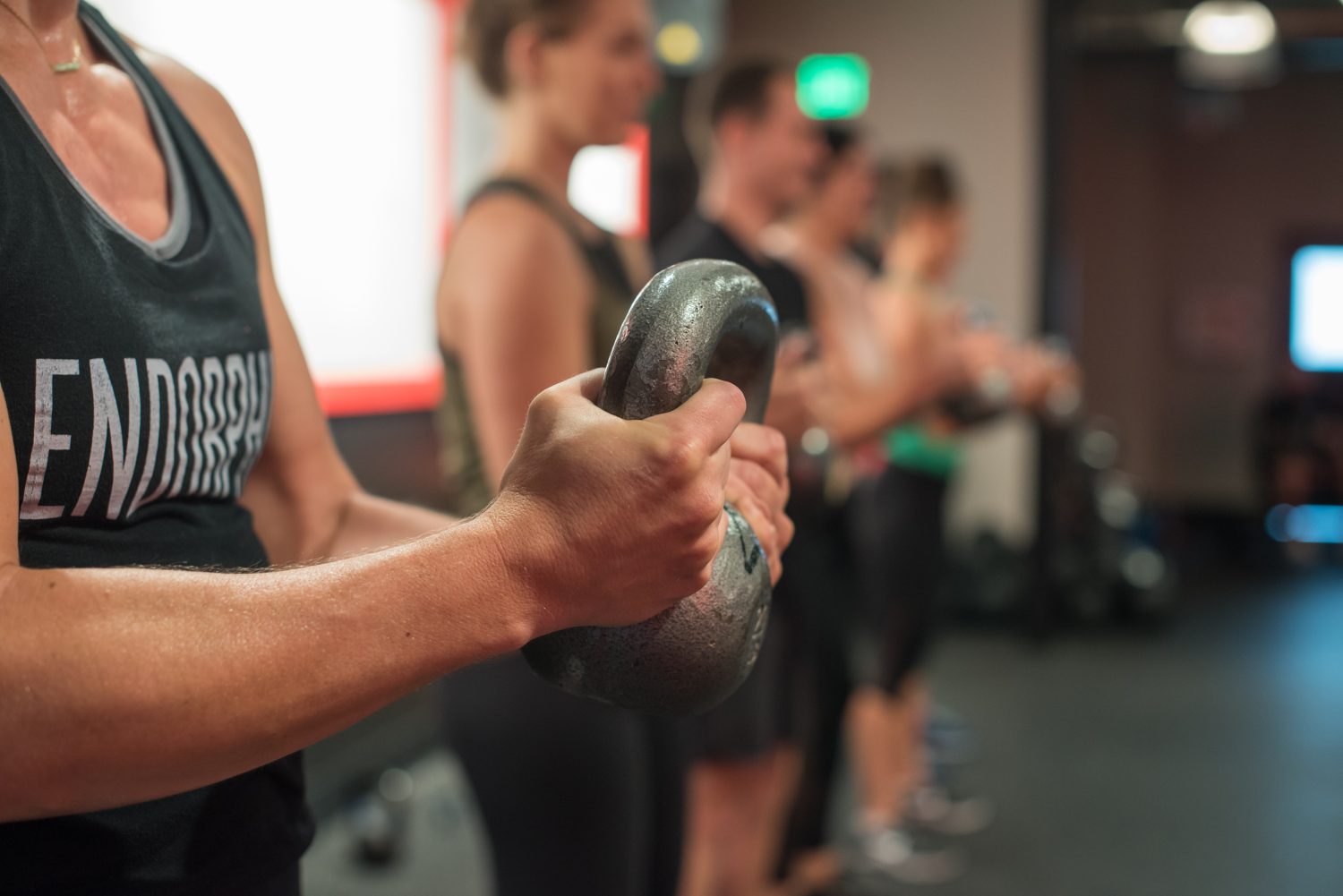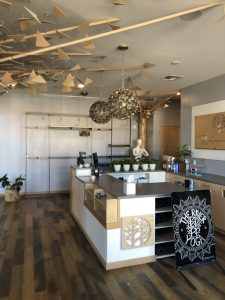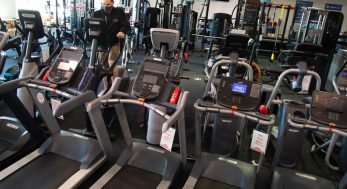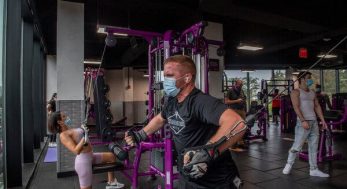
Contemplating existential threats confronting the boutique fitness industry in the wake of COVID-19, Patrick Harrington finds a lesson in savasana, the “Corpse Pose” that typically brings yoga classes to a close.
“The reason that pose is practiced as often as it is — every single time — is because, philosophically, if you’re not willing to face your own death and let go of the parts that aren’t working in order for you to be reborn when you stand back up off the mat, life is really hard,” said Harrington, the founder of Kindness Yoga with nine locations in the Denver area. “I’m embracing every day dying a little death around the future of our business, because it’s unknown. Will boutique fitness make it? Will people come back?”
The degree to which members will come back when gyms reopen is a question vexing the entire fitness industry, but boutique studios face special challenges. By definition, they are smaller than big-name, big-box gyms, so conducting classes with social distancing severely limits the number of people they can serve in a given class. Often they are small privately owned businesses with high overhead costs, especially in Denver with its steep real estate prices.
RELATED: Denver gyms are preparing to reopen. Here’s how they plan to get you sweating safely.
Harrington said some yoga teachers have responded to the shutdown of studios by marketing their own online classes, creating a new source of competition in an industry that already had a lot of it.
“The average profit margin for a yoga studio is 7%,” Harrington said. “That’s a very thin margin, and it relied upon maximum occupancy. If you don’t have a business where you can have maximum occupancy, you don’t have a business. We are having to negotiate with all of our landlords and/or walk away, and/or declare bankruptcy because the opportunity to be four walls where people come together and spiritualize, practice yoga, work out, is no longer an advantage. It’s actually a disadvantage. All the risk the entrepreneurs took to become a boutique fitness location, there’s no upside to our risk anymore, at all. What used to be an upside potential for the risk has now shifted to be a complete downside.”
Danielle Barbeau, the sole owner of The River Yoga’s two Denver locations, says she is optimistic by nature and “hopefully not naïve” regarding the future of boutique fitness. She is going forward with construction on a third studio but concedes it is an act of hope.

“I don’t think the boutique industry is dead by any means,” Barbeau said. “I do think it’s in a space of some transformation, and I don’t think everyone is going to survive this.”
Corina Lindley owns six Denver Endorphin studios and another in Eagle that offer yoga, barre, indoor cycling, high-intensity training and strength training. Having founded the business in 2007, she once had 11 studios but closed five in the past four years because of competition from national chains. She calls Endorphin, which she co-owns with her husband, a “creative passion project,” but even before COVID-19, there were times when she wondered if it was worth it.
“We’ve never had a year when it’s been so financially bad that we’ve decided to quit, but we’ve had plenty of years when we almost did,” Lindley said. “It’s the community that keeps us together, the faces and the emails that say, ‘Thank you for doing what you’re doing’ that keep us going.”
Lindley has been working 18-hour days since Colorado gyms closed in March, trying to hold her company together.
“I think that’s what it’s going to take,” Lindley said. “Hopefully that kind of work ethic is going to help take these boutique gyms into survival and success. We hope there’s enough people who still want that type of environment to work out. We feel strongly that we will survive. What that looks like going forward, we don’t know.”
Barbeau believes the fragmented boutique industry needed to “organize and professionalize” itself even before COVID-19.
“Now we are being challenged to organize and think ahead about what is going to make this industry sustainable for entrepreneurs and for individuals,” Barbeau said. “We as business owners are going to have to look at how do we increase our margins, how do we diversify our revenue streams, and how do we bring value in different ways to people who are willing to stick with us.”
Barbeau is investing in high-quality video technology for online classes, acknowledging that it’s a gamble while hoping members find it a lot more appealing than “Joe Schmo who is filming with his iPhone in his living room,” she said. The River is currently streaming five live classes daily, and on June 1 she will launch an on-demand membership site.
“That will be like Netflix for yoga classes, where you can get on at any time, you can pick which kind of class you want, and off you go,” Barbeau said. “We’re hoping a long-term investment in that will be another way to support our people, even once they can come back into the studio.”
There is still the dilemma that the appeal of boutique fitness is based in part on the social benefits of working out in groups, but COVID-19 isolates people who pursue fitness. Even after restrictions on gatherings are relaxed, some will be reluctant to return to group workouts.
Lindley can speak to the health side of the issue, having founded her studios following a career in public health where she worked in HIV, chronic disease and obesity prevention. She has a master’s degree in public health and epidemiology.
“We are human and social and connecting beings,” Lindley said. “This is a virus that is not going away. With the population of under 40, or even under 50, the mortality rate is very low. Yeah, it’s a little bit more than the flu, but we also have to live our lives and get on with things. The economic and mental and psychological effects of not going to the gym, I think, way out-weigh the risk of potentially getting COVID in these populations.”

